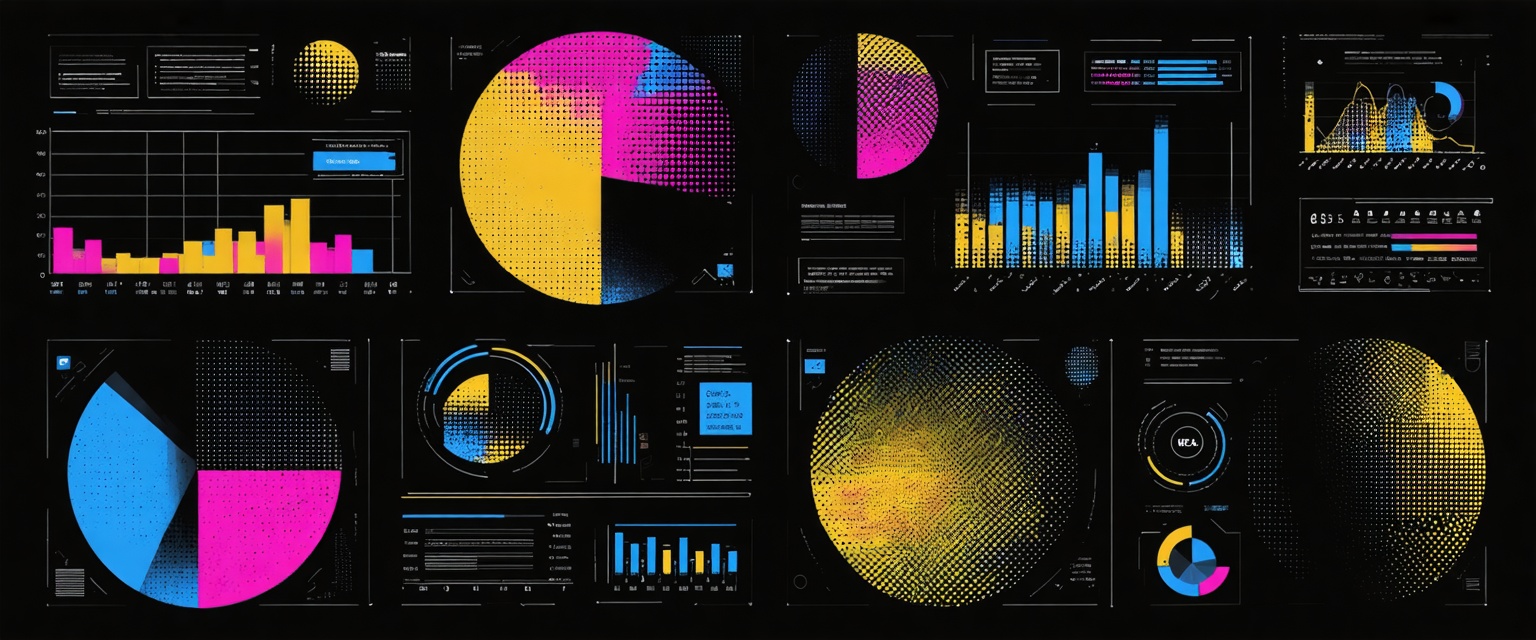How AI Agents Automate Promotional Impact Assessment for E-commerce Analytics Managers
Data fragmentation undermines accurate promotional assessment for e-commerce businesses. When critical data scatters across platforms, websites, CRMs, and social media, analytics managers can't properly attribute sales to promotions or make timely campaign adjustments. This leads to missed opportunities, wasted marketing budget, and declining ROI.
AI agents solve this fragmentation problem by automating promotional impact assessment. These specialized artificial intelligence systems use tools, maintain context across tasks, and accomplish specific goals independently. Unlike traditional analytics tools, they integrate data across previously disconnected systems to analyze, optimize, and report on marketing efforts with minimal human input.
Organizations have increasingly adopted AI agents to manage critical marketing tasks, improving accuracy in their promotional assessments. These agents excel at processing vast amounts of data quickly, identifying patterns and insights humans might miss.
Types of AI Agents and Their Functions
Understanding the various types of AI agents is essential for optimizing promotional impact assessments. For a comprehensive overview, refer to our AI agents guide:
- Predictive Analytics Agents: These agents forecast trends and customer responses to promotions. They use machine learning to segment customers based on behavioral patterns and predict which segments are most likely to convert.
- Automated Insights Generators: These agents analyze campaign performance data as it arrives, providing instant insights rather than retrospective reports. This real-time analysis allows e-commerce analytics managers to make quick adjustments to ongoing campaigns.
- Personalization Engines: These sophisticated AI agents track how different micro-segments respond to various promotional elements, creating tailored experiences for individual customers. They adjust recommendations, email content, or website layouts based on unique preferences.
AI agents transform raw data into actionable insights, working as powerful business intelligence tools. They process thousands of data points simultaneously, enabling analysis and personalization that human teams couldn't achieve manually.
By using AI agents, e-commerce businesses create more targeted, effective promotional campaigns. These intelligent systems continuously learn and adapt, improving their performance over time.
The Need for Automating Promotional Impact Assessment for E-commerce Analytics Managers
As e-commerce competition intensifies, accurate and timely promotional assessment has become essential. Manual evaluation methods simply cannot keep pace with modern digital retail demands.
Data Integration Challenges
One major hurdle is data fragmentation across different systems. From e-commerce platforms to CRM software and marketing channels, critical information sits in separate silos.
This fragmentation makes it difficult to get a unified view of campaign performance, accurately attribute sales to specific promotions, or identify cross-channel effects between campaigns.
The scattered data across different platforms hinders the possibility of developing a holistic view of promotional performance.
Quality and Consistency Issues
Manual promotional impact assessment often contains errors due to inconsistent data formats, duplicate records, or human error during data handling.
These quality issues lead to poor recommendations and missed opportunities, undermining promotional strategies.
Analytics Lag
In e-commerce, timing is crucial. Manual processes deliver insights too slowly, often after the window for action has closed.
This delay limits your ability to optimize ongoing campaigns, slows response to underperforming promotions, and hampers real-time personalization efforts.
Measurement Complexity
Accurately measuring promotional impact becomes increasingly difficult as businesses grow, particularly when controlling for seasonality, identifying cannibalization between promotions, or measuring long-term impacts on customer value.
Without sophisticated tools, it's easy to misattribute sales spikes or miss subtle but important trends.
Privacy Regulations and Data Restrictions
Evolving data privacy rules complicate how customer data can be tracked and analyzed, making manual approaches less adaptable as attribution windows shrink and user-level data becomes more restricted.
This limited access to detailed data makes manual measurement less reliable and potentially non-compliant.
Growing Volume and Complexity of Promotions
Brands now run more complex, overlapping, and segmented promotions than ever before. Manual analysis cannot keep up with multiple simultaneous promotions, personalization efforts, or effectively process results from A/B test automation.
How AI Agents Automate Promotional Impact Assessment for E-commerce Analytics Managers
AI agents are transforming how e-commerce businesses evaluate and optimize promotional campaigns. By automating complex analysis, these systems deliver unprecedented accuracy and efficiency.
Data Integration Across Channels
AI agents solve the persistent problem of data fragmentation. Acting as AI agents for information gathering, they pull information from multiple platforms without copy-paste errors, standardizing measurement criteria, and quickly identifying outliers that might skew results.
This automated integration creates a unified view of promotional performance across channels, enhancing raw data with additional context and insights that traditional analysis might miss.
Self-Learning and Adaptation
The most transformative aspect of AI agents is their capacity to learn continuously. These systems don't just analyze static data; they evolve their understanding based on new information and outcomes.
They can run and analyze hundreds of ad variations simultaneously, predict campaign outcomes based on early signals, and adapt to changing market conditions automatically.
This self-improving capability means promotional assessment becomes more accurate over time as the AI develops a nuanced understanding of what drives success in your specific market.
Benefits of Using AI Agents for E-commerce Analytics Managers
AI agents bring game-changing benefits to e-commerce analytics through better customer understanding, smarter budget allocation, and the ability to quickly adjust strategies based on emerging trends.
Increased Efficiency and Accuracy
AI automation delivers substantial efficiency gains by eliminating manual data gathering while ensuring consistent measurement across all promotional activities.
By automating routine analysis, AI agents free your team to focus on strategic, revenue-generating activities rather than drowning in data processing.
Enhanced Strategic Decision-Making
AI-generated insights lead to better promotional decisions with greater accuracy than traditional forecasting. This improves resource allocation and campaign planning.
The depth and speed of AI analysis enable proactive strategic thinking rather than reactive responses, allowing you to anticipate market trends and shape promotional strategies accordingly.
Scalability and Adaptability
AI systems scale promotional assessment capabilities without requiring proportional resource increases. Organizations using AI agents can manage more campaigns with smaller analytics teams.
These AI systems adapt to changing market conditions automatically, running and analyzing hundreds of variations simultaneously while continuously learning and refining elements in real-time.
Implementation Considerations for E-commerce Analytics Managers
Integrating AI agents for promotional impact assessment requires careful planning to ensure successful implementation.
Data Readiness
AI agents' effectiveness depends on your data quality and accessibility. Before implementation, audit your existing data sources and ensure data is clean, consistent, and properly formatted.
Establish data governance protocols and implement automated validation processes. Remember that AI systems are only as good as the data they analyze.
Integration Strategies
Seamless integration with existing systems maximizes AI agent benefits. Consider using API-based integration to connect all platforms and create automated data flows.
A unified data warehouse that consolidates information from all channels ensures real-time data synchronization, giving AI agents access to comprehensive information.
Change Management
Introducing AI agents changes how teams work. Provide comprehensive training for marketing and analytics teams and address skill gaps through upskilling programs.
Establish clear workflows defining how human teams will collaborate with AI agents and communicate the benefits and limitations of AI systems to build trust.
Phased Approach
Gradual implementation allows for learning and adjustment throughout the process. Start with smaller AI implementations before expanding to more complex systems.
This approach reduces risk, provides opportunities to demonstrate early wins, and helps teams develop expertise with AI systems progressively.
Future Trends in AI for E-commerce
The integration of AI in e-commerce promotional strategies continues to evolve with several key trends shaping the future.
Multi-agent Systems
The next evolution will involve multiple specialized AI agents working together to optimize different aspects of the promotional ecosystem.
These systems will analyze customer behavior, inventory levels, and market trends simultaneously while coordinating promotional activities across various channels and touchpoints.
Predictive Inventory Management
AI will increasingly connect promotional activities directly to supply chain operations, enabling real-time adjustments to promotions based on inventory levels.
This connection helps avoid out-of-stock frustrations during promotional periods and maximizes supply chain efficiency through better forecasting.
Emotional Intelligence Enhancement
Future AI systems will understand and respond to customer emotional states when designing promotions, creating more empathetic and engaging promotional experiences.
This emotional intelligence will help create stronger connections between brands and customers, potentially increasing loyalty and lifetime value.
Cross-platform Behavioral Analysis
AI will develop a more sophisticated understanding of customer journeys by tracking interactions across devices, platforms, and channels.
This comprehensive view will enable more cohesive promotional strategies that resonate with customers regardless of where they interact with the brand.
Datagrid for E-commerce Analytics Managers
Running an e-commerce business means juggling vast amounts of data across multiple platforms. Datagrid's AI-powered platform offers specialized solutions to streamline operations and boost promotional efforts.
Product Catalog Optimization
Datagrid's AI agents process thousands of product listings simultaneously, extracting critical attributes for improved product attribute management and generating better descriptions using AI for product descriptions. This improves search visibility and conversion rates, helping your products stand out.
Customer Behavior Analysis
Our AI agents, including specialized AI agents for cart abandonment, analyze shopping patterns and purchase history across your site to find opportunities for personalization and conversion optimization. These insights help tailor promotional strategies to match customer preferences.
Competitive Price Monitoring
Datagrid's automated price tracking across marketplaces extracts pricing trends and identifies optimal strategies. This intelligence helps you adjust promotional pricing dynamically for maximum impact.
Inventory Management Intelligence
Our AI analyzes sales velocity and seasonal trends to generate smarter inventory forecasts, preventing stockouts during promotions and ensuring adequate inventory for your marketing campaigns.
Review and Feedback Processing
Extract valuable insights from customer reviews and support tickets to identify sentiment, product issues, and customer suggestions. This helps prioritize improvements during promotional periods.
Marketplace Performance Analysis
Process sales data across multiple channels to identify platform-specific opportunities. Datagrid provides unified cross-channel strategies for tailored promotional efforts on each platform.
Simplify E-commerce Tasks with Datagrid's Agentic AI
Don't let data complexity bog down your team. Datagrid's AI-powered platform automates tedious data tasks, reduces manual processing time, and provides actionable insights instantly.
With Datagrid, e-commerce analytics managers can streamline operations and focus on strategic decisions. Our AI agents handle data integration, analysis, and reporting, giving your team more time for high-value activities.
See how Datagrid can help you increase efficiency and drive growth for your e-commerce business. Create a free Datagrid account today and experience the power of AI-driven analytics.













